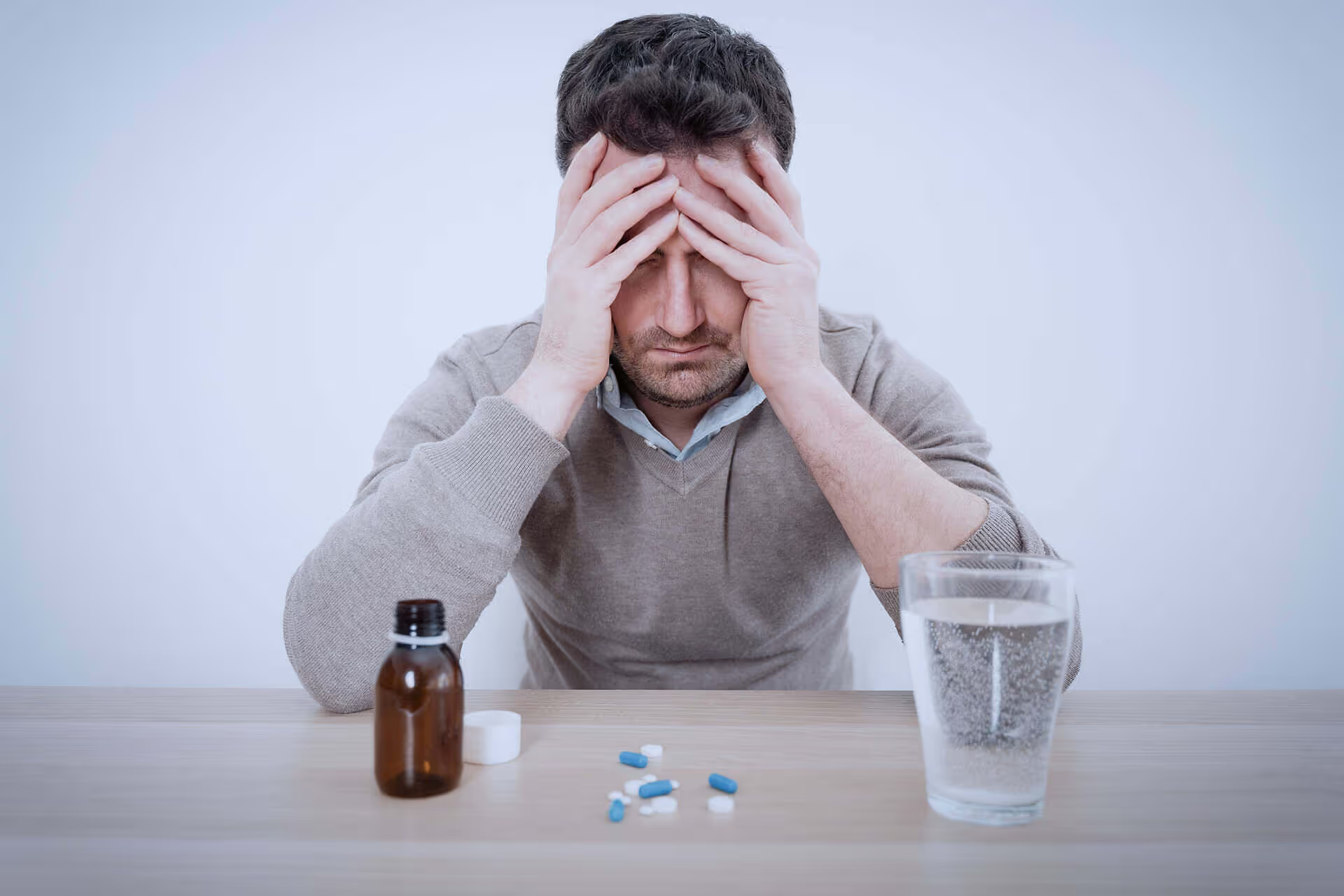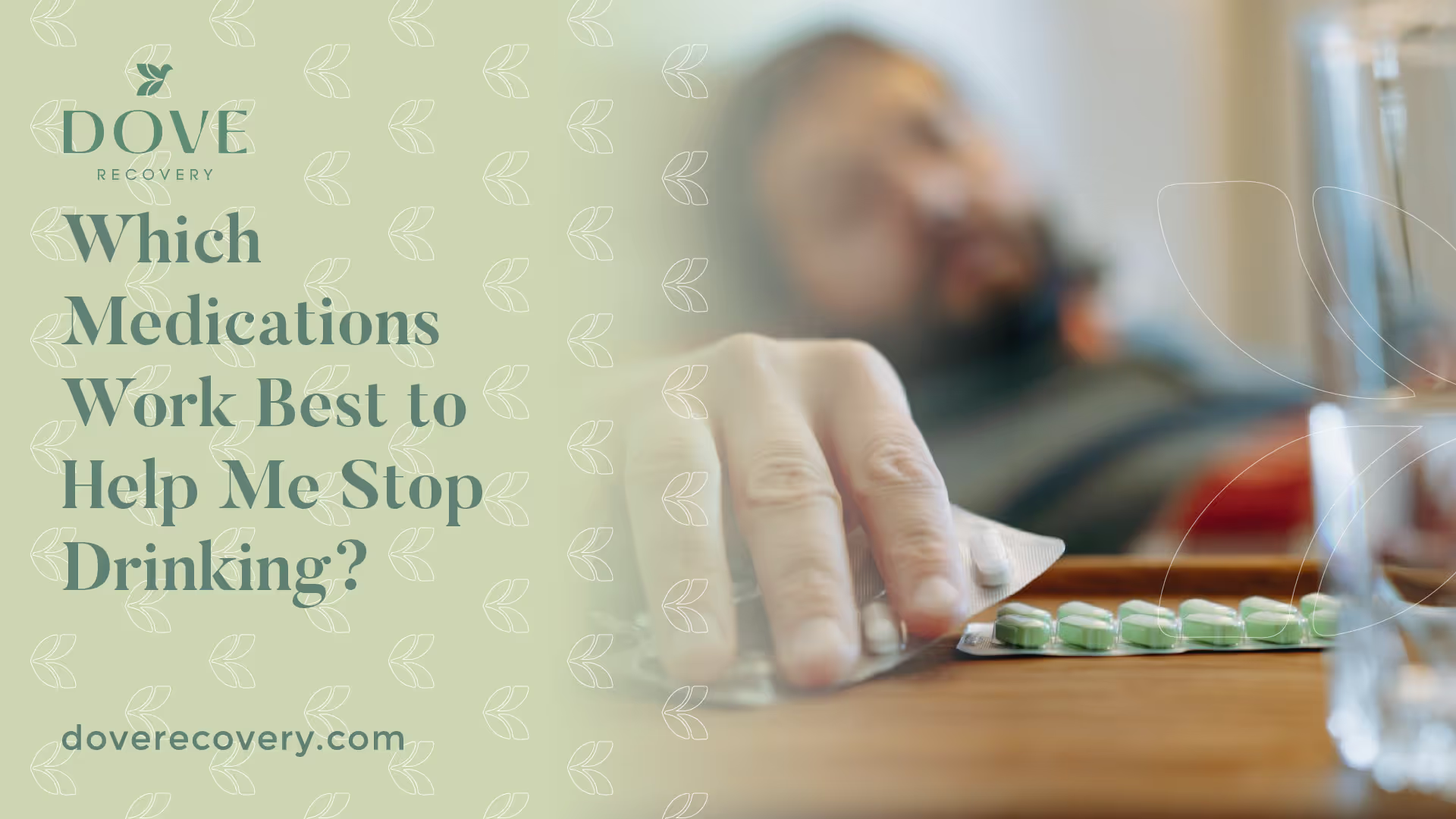Which Medications Work Best to Help Me Stop Drinking?

Which Medications Work Best to Help Me Stop Drinking?
If you're struggling with alcohol addiction, you're not alone. Millions of people around the world struggle with alcohol addiction, and it can be a difficult and lonely journey. However, there are medications available that can help you overcome your addiction and reclaim your life. In this article, we'll discuss some of the medications that can help you stop drinking.

Medications for Alcohol Addiction
There are three main categories of medications that can help with alcohol addiction:
Acamprosate
This medication is used to help reduce cravings for alcohol. It is believed to work by balancing the chemicals in the brain that are disrupted by alcohol use. Acamprosate is usually taken for up to a year and is most effective when used in conjunction with other forms of treatment, such as therapy and support groups.
Naltrexone
This medication works by blocking the effects of alcohol on the brain. This can help reduce cravings and make it easier to resist the urge to drink. Naltrexone can be taken daily or as needed, and it is often used in combination with other forms of treatment.
Disulfiram
This medication works by causing unpleasant side effects when alcohol is consumed. This can help deter individuals from drinking and reduce cravings. Disulfiram is typically taken daily and is most effective when used in combination with other forms of treatment.
It's important to note that these medications are not a cure for alcohol addiction. They are most effective when used in conjunction with other forms of treatment, such as therapy and support groups.
How Do These Medications Work in the Body?
Each of these medications works in a different way to help individuals overcome alcohol addiction.
- Acamprosate is believed to work by balancing the chemicals in the brain that are disrupted by alcohol use. By reducing the cravings for alcohol, it can make it easier for individuals to resist the urge to drink.
- Naltrexone works by blocking the effects of alcohol on the brain. This can help reduce cravings and make it easier for individuals to maintain sobriety. It is important to note that naltrexone should only be used after an individual has stopped drinking as it can cause immediate withdrawal symptoms if taken while still consuming alcohol.
- Disulfiram works differently than acamprosate and naltrexone by causing unpleasant side effects when alcohol is consumed. These side effects can include nausea, vomiting, and headaches, which can deter individuals from drinking and reduce cravings.
Overall, each of these medications works in a unique way to help individuals overcome their addiction to alcohol. However, they are most effective when used in combination with other forms of treatment such as therapy and support groups.
Potential Side Effects and Risks
While medications can be effective in treating alcohol addiction, it's important to be aware of the potential side effects and risks associated with each medication.
- Acamprosate is generally well-tolerated, but some common side effects include diarrhea, nausea, and headaches. It's important to note that acamprosate should not be taken by individuals with severe kidney problems.
- Naltrexone can cause some side effects such as nausea, headaches, and fatigue. In rare cases, it can also cause liver damage. It's important to let your doctor know if you have any liver problems before taking naltrexone.
- Disulfiram can cause a variety of side effects including nausea, vomiting, and headaches. In rare cases, it can also cause severe liver damage. It's important to avoid all forms of alcohol while taking disulfiram as even small amounts of alcohol can cause a severe reaction.
It's important to discuss the potential risks and benefits of each medication with your healthcare provider before starting treatment. They can help determine which medication is right for you based on your medical history and individual needs.
The Benefits of Medications for Alcohol Addiction
There are many benefits to using medications to help with alcohol addiction. Some of these benefits include:
Reduced cravings
If you or someone you know is struggling with alcohol addiction, you may be wondering what options are available to help overcome the urge to drink. One effective approach is medication-assisted treatment (MAT). MAT involves the use of medications that can help reduce cravings and make it easier to resist the temptation to drink. By reducing the intensity of cravings, individuals can focus on other aspects of their recovery, such as therapy and support groups.
Improved mood
Alcohol addiction can take a toll on mental health, and many individuals with addiction also struggle with depression and anxiety. Medications used in MAT can not only help reduce cravings, but also improve mood and reduce symptoms of depression. This can be especially important for individuals in recovery, as addressing mental health concerns can help prevent relapse and promote overall well-being.
Reduced risk of relapse
One of the biggest challenges in overcoming addiction is the risk of relapse. Medications used in MAT can help reduce the risk of relapse by stabilizing brain chemistry and reducing cravings. This gives individuals a better chance of achieving long-term recovery and maintaining sobriety. In combination with therapy, support groups, and other forms of treatment, medication-assisted treatment can be a powerful tool in the fight against addiction.
How to Determine Which Medication is Right for You
Choosing the right medication to help with alcohol addiction can be a complex process. Each medication works differently and has its own set of potential side effects and risks. It's important to work closely with your healthcare provider to determine which medication is right for you based on your individual needs.
Some factors that may influence the decision include:
- Medical history: Your healthcare provider will want to review your medical history, including any past or current health conditions, medications, and allergies. Some medications used in MAT may not be appropriate for individuals with certain medical conditions or who are taking certain medications.
- Severity of addiction: The severity of your addiction can also help determine which medication is right for you. Individuals with more severe addictions may benefit from medications that are more potent, while those with less severe addictions may only need a milder medication.
- Personal preferences: It's important to consider personal preferences when choosing a medication. For example, some individuals may prefer a medication that is taken daily, while others may prefer a medication that is only taken as needed.
Ultimately, the decision of which medication to use should be made in collaboration with your healthcare provider. They can help weigh the potential benefits and risks of each medication and make a recommendation based on your individual needs and preferences. It's important to follow their guidance closely and report any side effects or concerns promptly.
How to Get Help
If you're struggling with alcohol addiction and are interested in exploring medication options, it's important to speak with a healthcare provider. They can help determine which medication is right for you and develop a treatment plan that works best for your individual needs.
In addition to medication, there are many other forms of treatment available, including therapy, support groups, and holistic approaches. It's important to find a treatment plan that works best for you and to stay committed to your recovery journey.
The Importance of a Comprehensive Treatment Plan
While medication can be an effective tool in treating alcohol addiction, it's important to understand that it is just one piece of the puzzle. A comprehensive treatment plan that includes medication, therapy, and support groups is often the most effective approach.
Therapy
Therapy can help individuals address the underlying psychological and emotional issues that may have contributed to their addiction. This can include individual therapy, group therapy, or family therapy. By addressing these issues, individuals can develop new coping skills and strategies to help prevent relapse.
Support Groups
Support groups such as Alcoholics Anonymous (AA) can provide a sense of community and connection for individuals in recovery. These groups offer a safe space to share experiences and receive support from others who are going through similar struggles. In addition, many support groups offer mentorship programs or sponsorships to help individuals navigate the challenges of recovery.
Comprehensive Treatment
A comprehensive treatment plan that includes medication, therapy, and support groups offers a holistic approach to treating alcohol addiction. By addressing all aspects of an individual's physical, mental, and emotional health, they can increase their chances of achieving long-term sobriety and maintaining a healthy lifestyle.
Conclusion
In conclusion, medication-assisted treatment can be a powerful tool in the fight against alcohol addiction. While medications alone are not a cure for addiction, they can help reduce cravings and make it easier to resist the urge to drink. When used in combination with therapy, support groups, and other forms of treatment, individuals can increase their chances of achieving long-term recovery and maintaining sobriety.
It's important to work closely with a healthcare provider to determine which medication is right for you based on your individual needs and preferences. With dedication and commitment to a comprehensive treatment plan, individuals can overcome their addiction and reclaim their lives.
Sources
- National Institute on Alcohol Abuse and Alcoholism: https://www.niaaa.nih.gov/publications/brochures-and-fact-sheets/treatment-alcohol-problems-finding-and-getting-help
- Substance Abuse and Mental Health Services Administration: https://store.samhsa.gov/product/Medications-for-the-Treatment-of-Alcohol-Use-Disorder/SMA15-4907
